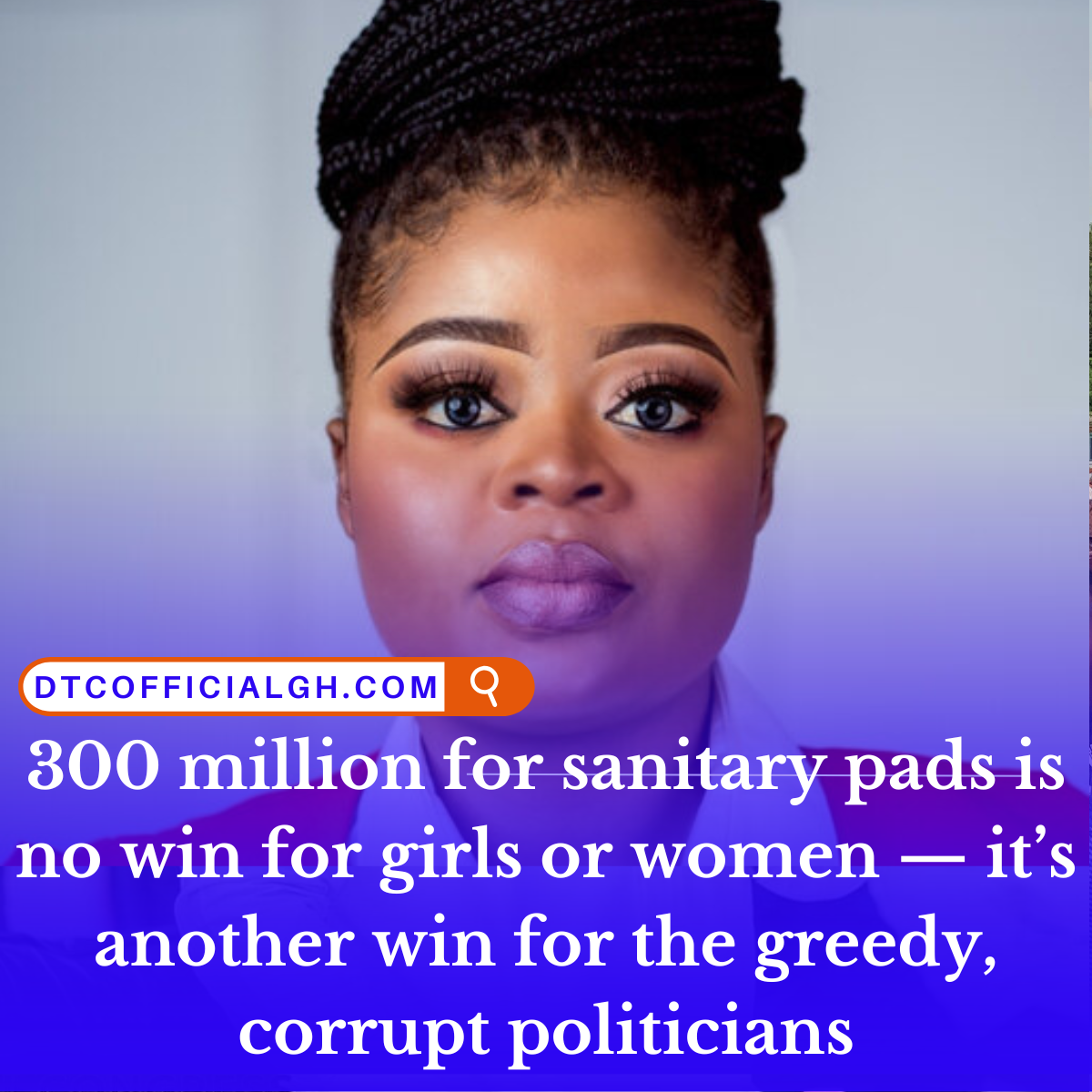Government’s GH¢300 Million For Sanitary Pad Expenditure Beats Common Sense

The government’s recent decision to allocate a staggering GH¢300 million for the importation of sanitary pads has sparked a heated public debate, with many questioning the sustainability, transparency, and logic behind the policy.
In a detailed critique, gender and climate advocate Mercedes Asamani Rowe described the move as “ill-advised,” arguing that it fails to address the root cause of period poverty in Ghana — affordability, not availability. “While we all admit to the period poverty situation in some parts of the country, the concern has mostly been around affordability,” she stated.

According to Asamani Rowe, the government’s strategy is not only unsustainable but also financially questionable. Basic calculations raise eyebrows: even if a single pack of sanitary pad is procured at GH¢10, the total cost for 12 million pads should amount to GH¢120 million — far below the reported GH¢300 million expenditure. If the pads are priced at GH¢25 per pack to reach GH¢300 million, it implies a shocking inflation of market rates, potentially signaling corruption and mismanagement.
READ ALSO: 5 Powerful PR & Marketing Lessons Every Brand Needs Today
Critics argue that a better approach would be to abolish the numerous taxes imposed on sanitary pads, including a 20% import duty and a 15% VAT, which significantly inflate their retail prices. Removing these taxes would make pads more affordable to the masses and provide a long-term solution to period poverty.
Furthermore, Asamani Rowe highlighted local and sustainable alternatives that could be leveraged. These include supporting local manufacturers producing pads from biodegradable materials like banana fibre and introducing vocational training programs in schools to teach girls how to make reusable sanitary towels from fabric waste.
READ ALSO: The Silent Coup: How Politicizing the Military Threatens Ghana’s Stability
“There are more sustainable ways of dealing with the situation,” she asserted. “But how will political actors make their cuts out of the GH¢300 million if they apply such common sense approaches?”

The move has drawn criticism not only for its apparent short-term thinking but also for what many believe is another example of government decisions creating avenues for corruption under the guise of social intervention.
READ ALSO: Is Ghana’s new gold initiative truly a game-changer — or are we sitting on a ticking time bomb?
“This is no win for girls or women — it’s another win for the greedy, corrupt politician,” Asamani Rowe concluded, echoing a growing sentiment among citizens demanding accountability and sustainable solutions to national issues.
As the debate rages, civil society organizations and gender advocates are calling for transparency in the procurement process, a rethink of the current policy, and immediate steps toward long-term, systemic reforms to combat period poverty in Ghana.
Follow us on Twitter and WhatsApp for more.




